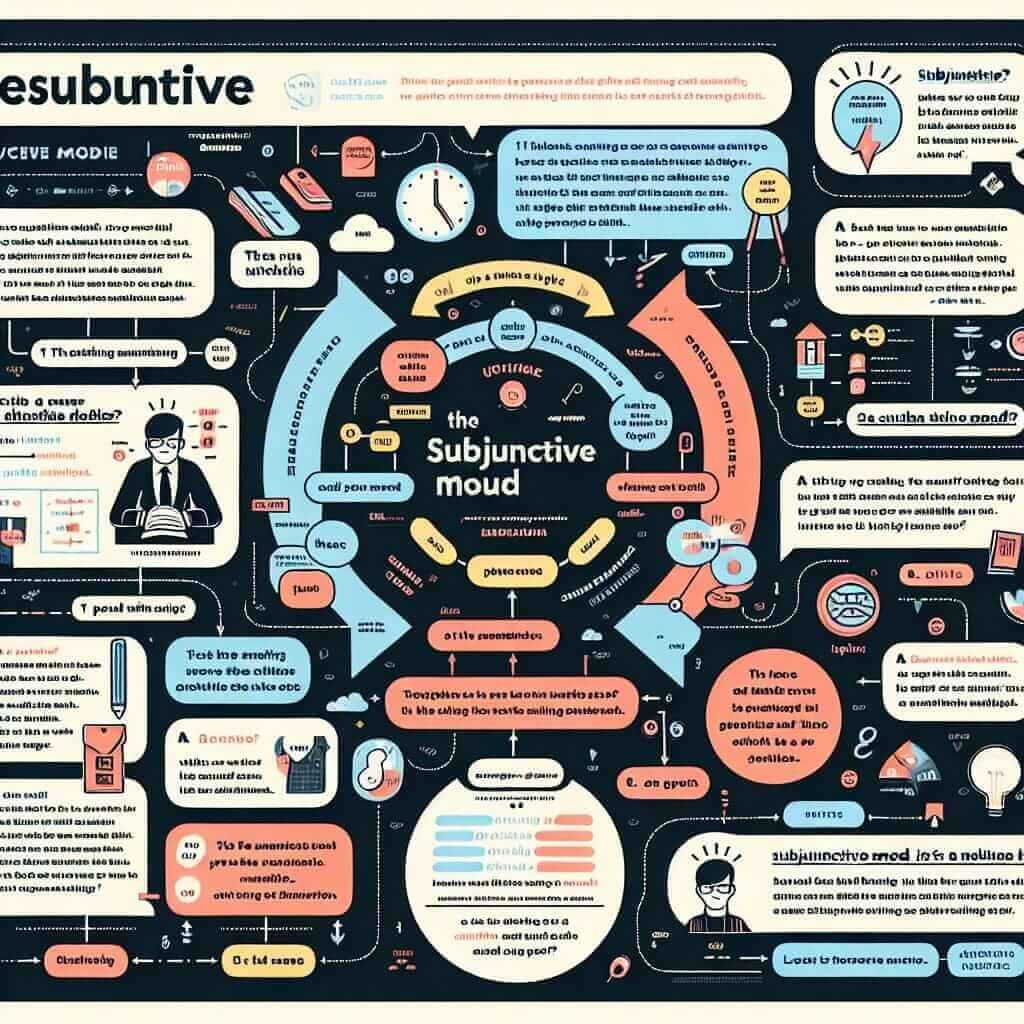“Were it possible, I would attend” – this construction often throws IELTS candidates for a loop. It sounds formal, even archaic, and it doesn’t seem to follow the usual rules of English grammar. However, understanding this structure, known as the subjunctive mood, can be your secret weapon to achieving a higher band score. While it doesn’t appear constantly in the IELTS, mastering it demonstrates a sophisticated grasp of English grammar, which examiners will appreciate.
Here are some examples of how the subjunctive mood can be used across different sections of the IELTS:
Speaking Part 2:
Describe a skill you wish you had.
“Were I able to play a musical instrument, I would choose the piano. The idea of creating beautiful melodies is very appealing.”
Writing Task 2:
Some people believe that space exploration is a waste of resources. Discuss both sides and give your opinion.
“Were it not for the pioneering spirit behind space exploration, humanity might never have made crucial advancements in communication and technology.”
Listening Section:
You might hear the subjunctive mood in a lecture or conversation:
“The professor argued that were the government to invest more in renewable energy, the effects of climate change could be mitigated.”
Deconstructing the Subjunctive Mood: What It Is and How It Works
The subjunctive mood is a verb form used to express hypothetical or wishful situations, recommendations, or statements that go against reality. It often signals a situation that is unlikely or impossible.
“Were it possible…” – A Closer Look
Let’s break down the phrase “Were it possible, I would attend”:
- “Were”: This is the subjunctive form of the verb “to be” used with the third person singular (he, she, it) and plural (they) subjects. Notice how it appears before the subject (“it”) instead of after, which is unusual in English sentence structure. This inverted structure is a hallmark of the subjunctive mood.
- “It”: This pronoun likely refers to a situation or condition mentioned earlier in the sentence or implied by the context.
- “Possible”: This adjective describes the hypothetical state of the situation.
- “I would attend”: This is the conditional clause, indicating the action that would happen if the situation were possible.
Why Use the Subjunctive Mood in IELTS?
Using the subjunctive mood correctly allows you to:
- Express hypothetical situations clearly: It helps you discuss possibilities and their potential outcomes.
- Demonstrate grammatical range and accuracy: Examiners look for a variety of complex grammatical structures, and the subjunctive mood fits the bill.
- Enhance your formal register: The subjunctive mood is generally more formal than other ways of expressing hypothetical situations. This can be particularly helpful in Writing Task 2 and in formal Speaking situations.

Mastering the Subjunctive Mood: Formulas and Applications
While “were it…” is a common way to express the subjunctive, there are other structures to be aware of.
Formula 1: “Were + Subject + to + Verb…”
This structure is used to express a hypothetical situation and its potential consequence.
Example:
- “Were the government to invest more heavily in public transportation, pollution levels would decrease significantly.”
Analysis:
- This sentence speculates about the positive effects of increased government investment.
- “Were the government to invest” sets up the hypothetical condition.
- “Pollution levels would decrease” presents the likely outcome.
IELTS Application:
This form is particularly useful in Writing Task 2 essays when discussing potential solutions to problems or speculating about the consequences of certain actions.
Formula 2: “Subjunctive Verb (base form) + … , Subject + would/could/might + Verb…”
In this structure, the subjunctive verb in its base form is used in the first clause.
Example:
- “Be it through stricter regulations or increased public awareness, we must find ways to combat climate change.”
Analysis:
- This sentence emphasizes the urgent need for action regardless of the specific method.
- “Be it” introduces possible options.
- “we must find ways…” highlights the obligation to act.
IELTS Application:
This construction is effective in both Speaking and Writing when presenting multiple solutions or possibilities.
Level Up Your Language: Subjunctive Synonyms and Variations
While “were…” is common, explore these variations to add finesse to your language:
- “Should + Subject + Verb…”: This structure is slightly less formal than “were…” but still conveys a similar meaning.
- Example: Should you require any assistance, please do not hesitate to contact me.
- “If + Subject + were to + Verb…”: This is a more elaborate way to express the subjunctive.
- Example: If the world were to adopt sustainable practices, future generations would benefit immensely.
Common Errors and How to Avoid Them
Even native speakers sometimes stumble with the subjunctive mood. Be mindful of these pitfalls:
- Incorrect Verb Form: Using the indicative mood instead of the subjunctive.
- Incorrect: If I was a millionaire, I would travel the world.
- Correct: If I were a millionaire, I would travel the world.
- Missing Inversion: Forgetting to invert the subject and verb after “were.”
- Incorrect: Were the weather nice, we would go to the beach.
- Correct: Were the weather nice, we would go to the beach.
Conclusion
Mastering the subjunctive mood is like adding a sophisticated tool to your IELTS toolkit. While it might seem intimidating at first, practice and familiarity are key. Remember to pay close attention to verb forms and word order. By incorporating this grammatical structure accurately and appropriately, you’ll demonstrate a nuanced understanding of English grammar, impressing examiners and boosting your chances of achieving your desired band score.